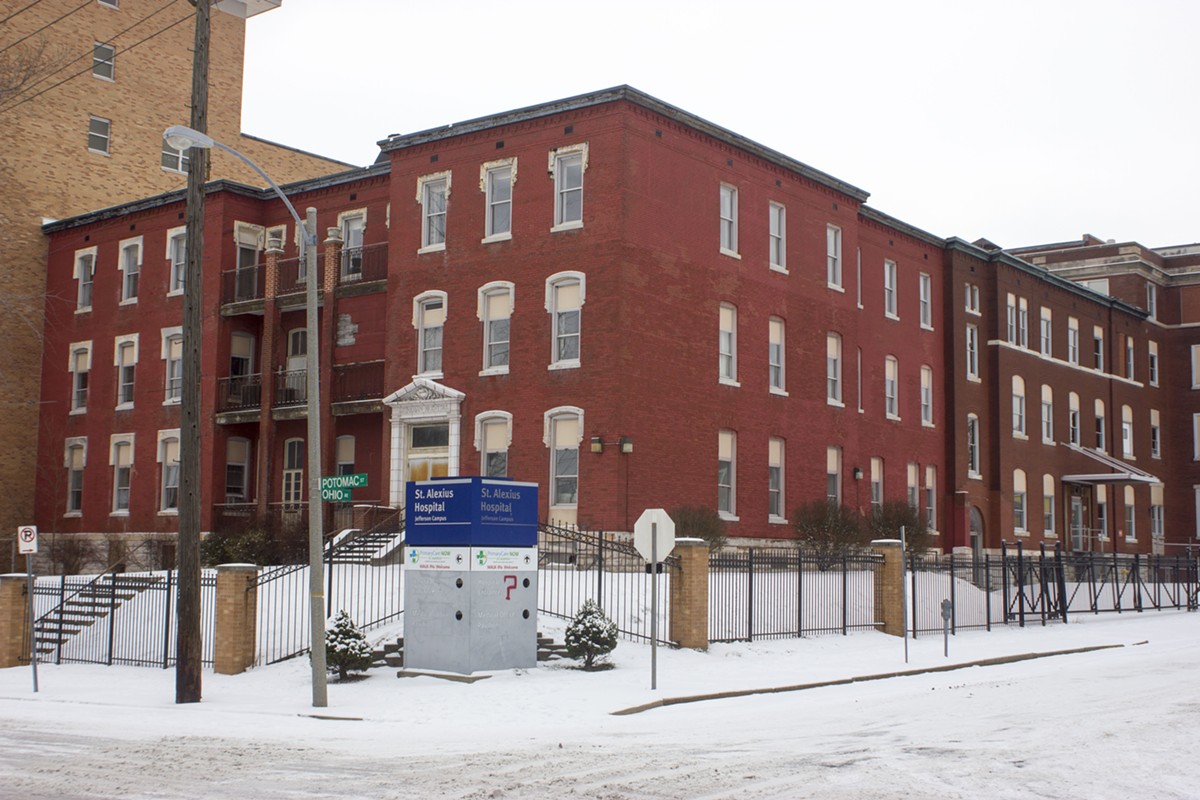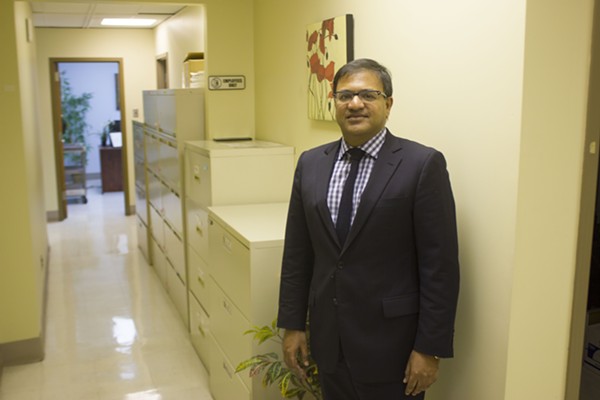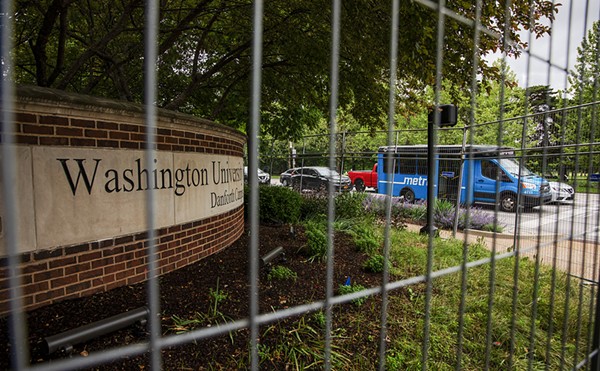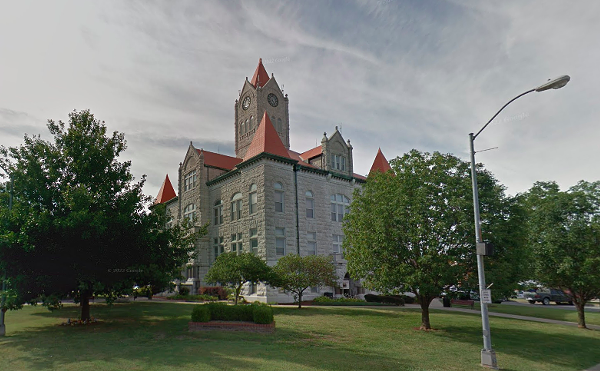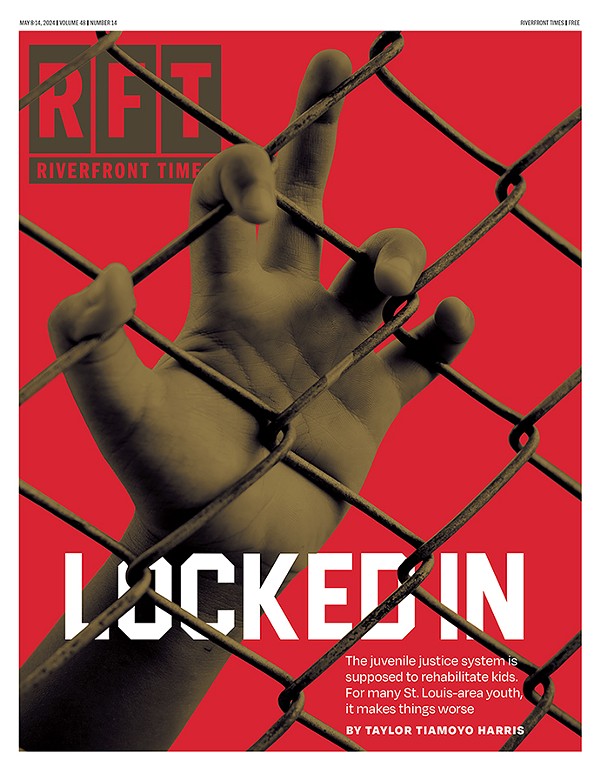Syed stammered and occasionally looked lost throughout the evening, often deferring to Sweeney as crowd members demanded specifics about his business plan and how he'd keep ex-cons from going off the rails near their houses and children. When he tried to assure them fast-acting federal authorities were just a phone call away if trouble arose, laughter erupted.
"We can't get a goddamn stolen car moved off the block that's been sitting there two months after we call the city 50 times," Francis Rodriguez, owner of the popular Yaqui's on Cherokee restaurant, shouted at Syed. "So you're telling me somehow magically the Bureau of Prisons is going to respond to us in this broke-ass neighborhood? I don't think so."
Deem, who stood in the back, called for a show of hands and pointedly counted out loud all the way past 80, the total number of people in attendance who opposed the plan. Just sixteen raised their hands in support.
Syed, who has come to see Deem as one of his main adversaries, stared blankly out at the crowd. He would later describe the meeting as an ambush and suggested some in attendance simply wanted him out of the way so they could try to buy the empty St. Alexius wing.
Syed tried once again at the night's end to persuade audience members that he only wished to help.
"I am here with good intentions," he said. "I want to make a difference."
When Syed first began assembling his bid for the halfway house, he reached out to U.S. Senator Claire McCaskill – one of the only politicians he knows – and asked her to write a letter of recommendation. She refused, informing the occasional political donor that the federal process must play out without the meddling of lawmakers, Syed says.
"I thought it was a good thing," he says. After all, he saw his home country of Pakistan as corrupt and took McCaskill's reluctance to get involved as confirmation the system was different in the United States.
"Do you know why this country is a superpower?" he asks. "Because it gives people a chance."
Most days, Syed rises early at his Chesterfield home and packs his kids off to school before heading into the city for work. His operation at St. Alexius is just one of his responsibilities. His company, Longterm Psychiatric Management, works with more than 100 nursing homes throughout the region to provide mental health care, he says. When the day is over, he returns home to his wife and kids.
Syed has considered different ways to work with inmates in recent years. In 2014, he licensed a new company, Xcell Prison Health, with the Missouri Secretary of State. He initially expected to focus on telerobotics to provide lower-cost psychiatric care to prisoners. The idea was to send high-tech robots equipped with powerful cameras and video monitors into correctional facilities to treat inmates. Syed says he can control one of the robots from his iPad and speak to a prisoner, who can hear the doctor's voice and see his face on the monitor, eliminating the expense of transporting inmates to off-site hospitals or clinics.
It was while he was researching potential opportunities that he learned of the five-year federal Bureau of Prisons contract to operate a halfway house in St. Louis. Syed didn't know much about running a halfway house, but he was intrigued by the possibilities.
Dismas House's current contract – a ten-year agreement – is set to expire at the end of May. That meant the clock was ticking. The new contract would be awarded sometime in the first quarter of 2016, according to a Bureau of Prisons spokesman. The winner would have to be ready to start housing ex-cons within 120 days of the award, according to the feds' request for proposals.
Syed was convinced he could be ready, but knew the competition wouldn't be easy. Not only has Dismas worked with the feds for nearly half of a century, it was the first halfway house in the nation, possibly the world.
Its founder, a Catholic priest named Father Charles Dismas Clark, was immortalized in the 1961 movie The Hoodlum Priest as a tough-talking man of the cloth who spent more time in pool halls than he did at the pulpit. (In one scene, Dismas schools a clueless lawyer on the reasons a young hood won't snitch on a couple of roughneck gamblers: "He'll take the rap himself before he'll blow in the gambling bit. He's hip to what happens to a fink.")
Still, Syed believed a medical-based proposal and the promise of nicer facilities had the potential to edge out Dismas, which resides in the nearly 90-year-old former faculty dorm of what was once McBride High School, located just off Kingshighway in north St. Louis. He put in a bid, asking $26.5 million to open and run a halfway house at St. Alexius.
The operation would be for-profit. It was a distinction his critics quickly seized on as a sign he was motivated by greed over the good of the inmates and neighborhood. Syed claims he wanted to give back to the city by paying taxes while also paying rent to the hospital – money that could help finance a needed cardiac lab. He points out nonprofits often have high-paid executives and he could have gone that route if money was his motivation.
"Money has never had value in my life, because it comes and goes," he says. "But the value you get when you take care of someone in pain..."
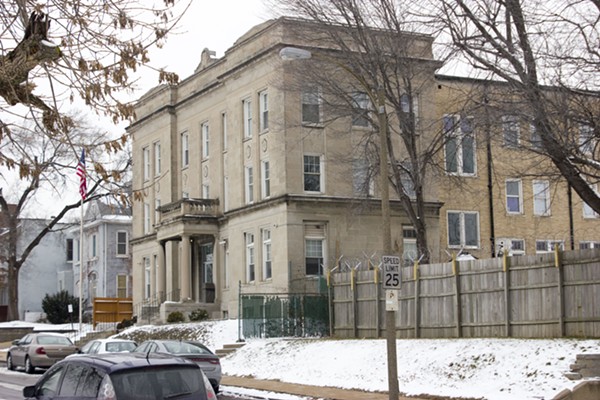
On a recent afternoon, an ambulance pulls up next to Dismas House. An older resident had slipped on the newly fallen snow outside, and program director Anthony Arington and a staffer had to help carry the man inside and call for medical help.
"There's always something," Arington says when he finally sits down at a desk littered with a half-dozen confiscated camera phones.
He's worked at Dismas for fifteen years and runs the operation's nuts and bolts. About 500 men receive services every year in the three-story block building. Former state Senator Jeff Smith bunked here for about three weeks at the end of a federal prison sentence for lying to investigators about campaign fliers. St. Louis musician and concert promoter Jimmy Tebeau, whose drug-fueled music festivals earned him a year in the federal pen, lived at Dismas and was granted nighttime work passes to play shows.
"It was unusual, but we worked with him," Arington says.
Most of the guys are unknowns, trying to return to life outside after serving time for drugs or violent crime. Their needs vary, from inmates who were in and out in a year to longtime cons stepping back into the world for the first time in two decades. It's important to match the right inmate to the right services if you want to set them up to leave their past behind.
"Even if you're a fiscal conservative, there's no sense to sending guys out without any skills – out into the wild, in a sense," Arington says. "You'll see them again in two weeks."
Federal performance reviews are sealed, but people who deal with Dismas have generally favorable things to say. Mary Stillman, the daughter of former U.S. Senator John Danforth, opened a charter school, Hawthorn Leadership School for Girls, next door in the old McBride building. She concedes she had concerns when first considering the location, but says they've had no real trouble.
"We really have an easy relationship with them," she says.
Doug Burris, chief U.S. probation officer for Missouri's Eastern District, would like to see Dismas work harder at placing the ex-cons in long-term jobs, but says halfway houses are a crucial bridge for guys who are coming back into society one way or another. Under the watch of a well-run program, they're far less likely to get in more trouble.
"In my neighborhood, I'd rather have a halfway house than a bar or liquor store," Burris says.
The federal contract is Dismas' lifeblood. The operation would almost certainly collapse without it. That's a worrisome thought, Arington admits, but he's confident the organization's track record and plans for the future will win over the Bureau of Prisons.
"We put out a good product," Arington says. "We're the incumbent."

